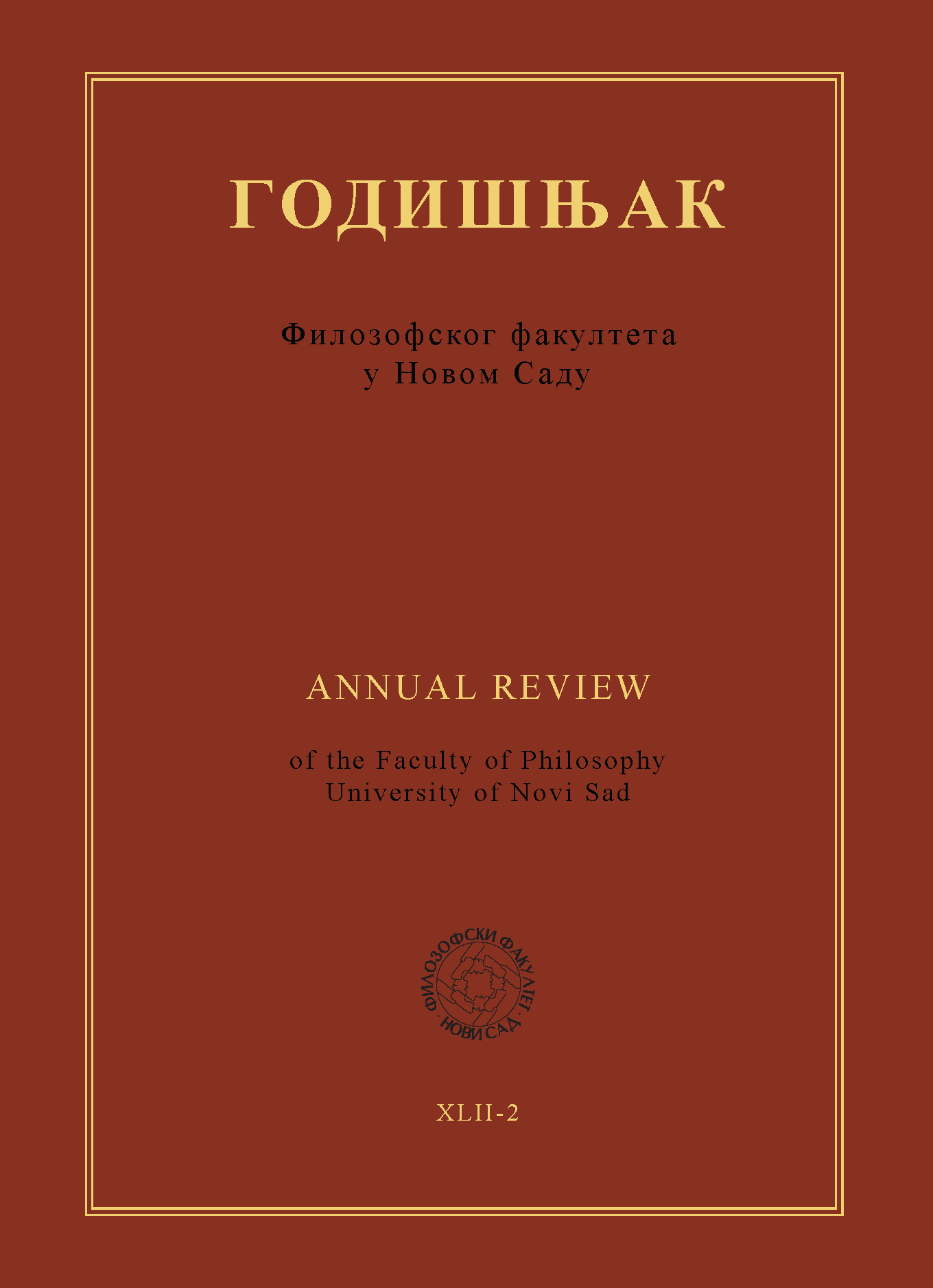ODREĐNJE ŽIVOTNE SNAGE U HOMEROVIM EPOVIMA
Главни садржај чланка
Сажетак
Ontološki dualizam duha i tela nalazi svoje korene u antici, te ovaj rad istražuje da li i u kom kontekstu možemo da ga prepoznamo u epskom pesništvu osmog i sedmog veka pre n.e. Osnovnu tezu, prethodnih studija zastupljenih u literaturi, da se u homerovskoj psihološkoj terminologiji kriju pitanja o poreklu i prirodi duše i o potonjem razlikovanju duše od tela, ovaj rad vidi kao posledicu metafizičke redukcije pojma životne snage, a ne kao izvorno homerovsko pitanje. Stoga se vraćam supstancijalnom jedinstvu pojma životne snage u Homerovoj epskoj poeziji da bih utvrdila bogatu terminološku neusklađenost u kojoj se jasno pokazuju prva objašnjenja kretanja i pokretačkih sila neodvojivih od predstava o životu i smrti. U radu se vrši klasifikacija termina koji opisuju životnu snagu na: životnu snagu srčanosti, životnu snagu sagledavanja i životnu snagu udova. Otuda rad termine ἦτορ, κῆρ, πραπίδες, φρένες, νόος, γυῖον, μέλεα, ψυχὴ, i θυμός podvodi pod pojam životne snage, a ne pod psihološku terminologiju, što omogućava da se razume potonja povezanost ψυχὴ i ζωή i napravi put ka filozofiji prirode ranih predsokratovaca.
Downloads
Детаљи чланка
Референце
Aristotel.( 2012). O duši, Parva naturalia (prev. Blagojević, S.). Beograd: Paideia.
Burnet, J. (1928). Greek Philosophy: Thales to Plato. London: MACMILLAN and CO.
Darcus, S. M. (1979). A Person's Relation to φρήν in Homer, Hesiod, and the Greek Lyric Poets. Glotta, 57, 159-173.
Darcus Sullivan, Sh. (1987). Πϱαπίδες in Homer. Glotta, 65, 3./4, 182-183.
Darcus Sullivan , Sh. (1988). An Analysis of φρένες in the Greek Lyric Poets (Excluding Pindar and Bacchylides). Glotta, 66, 1./2, 26-62.
Darcus Sullivan, Sh. (1996). Disturbances of the Mind and Heart in Early Greek Poetry. L'Antiquité Classique, T. 65, 31-51.
Hagen, H. (1994). Die Diskussion um die Schreibweise von Ζῆν(') im homerischen Epos. Glotta, 72, 1./4, 98-104.
Homer, Iliad, preuzeto sa: http://www.perseus.tufts.edu/hopper/text?doc=Perseus%3atext%3a1999.01.0133
Homer, Odyssey, preuzeto sa:
http://www.perseus.tufts.edu/hopper/text?doc=Perseus%3atext%3a1999.01.0135
Jahn, T. (1987). Zum Wortfeld “Seele-Geist” in der Sprache Homers. München: C.H. Beck’sche Verlagsbuchhandlung,
Plato, Phaedo, preuzeto: http://www.perseus.tufts.edu/hopper/text?doc=Perseus%3atext%3a1999.01.0169%3atext%3dPhaedo
Plato, Cratylus,preuzeto sa:
http://www.perseus.tufts.edu/hopper/text?doc=Perseus%3atext%3a1999.01.0171%3atext%3dCrat.
Rode, E. (1991). Psyche: kult duše i vera u besmrtnost kod Grka. Sremski Karlovci: Izdavačka knjižarnica Zorana Stojanovića.
Snell, B. (1975). Die Entdeckung des Geistes: Studien zur Entstehung des europäischen Denkers bei den Griechen. Göttingen: Vandenhoeck & Ruprecht.
Snell, B.( 1977). φρένες — φρόνησις. Glotta, 55. 1./2. 34-64.
Von Fritz, K. (1943). NOOΣ and Noein in the Homeric Poems. Classical Philology, 38, 2, 79-93.




